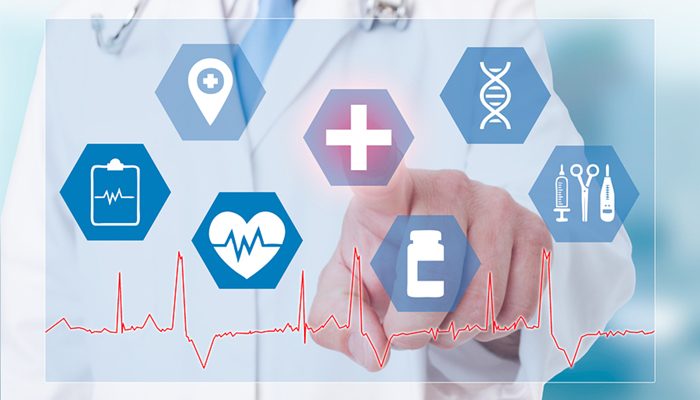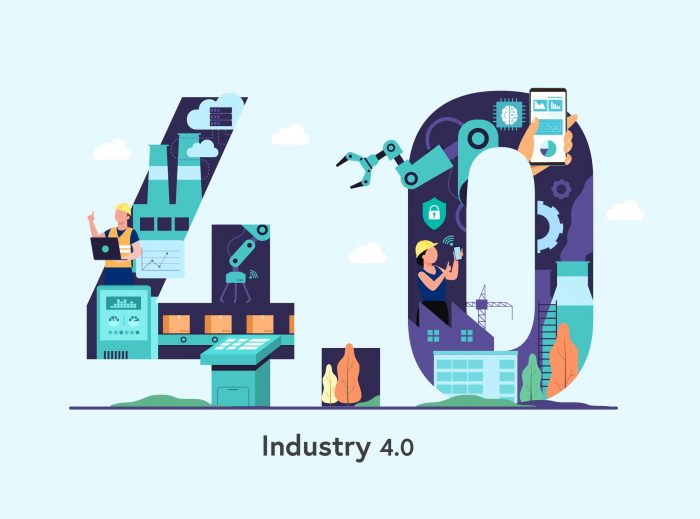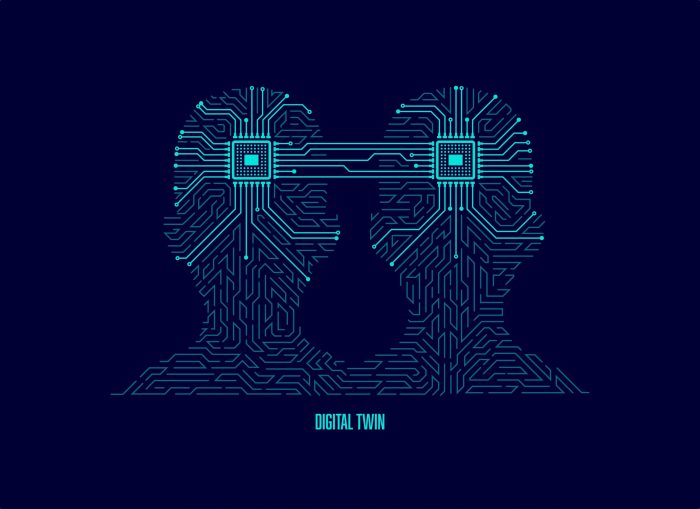Digital Transformation in Healthcare Industry
Audio : Listen to This Blog.
Healthcare has acquired an all-new meaning in this age of digital transformation. Digitization has helped those sectors that have large volumes of data to be handled. So practically every industry benefits from digitization. The innumerous benefits of digital transformation in healthcare sector have made modern-day medicine and patient care more convenient and efficient.
When the right level of technology is incorporated in healthcare, it helps in gathering the data in one place, making the data accessible anytime and anywhere and in making it easy for hospitals and healthcare institutions to improve the overall quality of healthcare provided. The sophisticated and modern digital transformation technologies have made it possible to integrate various modules in a digital healthcare system to cater to the needs of the hospital and administration, the doctors, and the patients. Now that you are aware of What is Digital Transformation in Healthcare? it is time to understand different terminologies associated with it.
Table of Contents
Digital Transformation Framework
Management Board
As with most other centralized modules, a management dashboard is required for every healthcare module. When there is a large volume of data interpreting, it is one thing that gets complex. The management dashboard is what makes it easy to obtain a clearer picture of the gathered data quickly. There are graphs and charts that add simplicity to data interpretation. The management team might not always have the time to get into the details to look for important information from the collected data. The dashboard gives a quick glimpse of the data by observing and displaying patterns that are relevant. It makes it easy to understand the statistics.
Read More : “Impact of Digital Transformation in shaping future Healthcare“
There are various details that could be incorporated into the dashboard. And based on the user logging into the module, there could be a personalized dashboard displayed. For example, the type of information that a doctor requires might not always be the same as the type of information that a patient requires. Real-time data collected would then be updated live. The dashboard could also be designed to be viewed easily on multiple devices. And all these features come with the added benefit that integrating the system with the existing system would be very simple. It would avoid downtime caused during transitions periods when process changes occur.
Feedback system
As the name indicates, the feedback system is one that gathers inputs from the users, and this data is then used to improve the existing system. In the digital healthcare systems feedback system consists of real-time data from the patients. Patients would feel better when their opinion is respected, and service quality is improved. And for the hospitals and healthcare institutions, real-time feedback would help improve the processes.

Be it for the normal in-patient and out-patient services or for corporate healthcare programs, the credibility of the hospital would be determined by the timeliness and overall quality of the services. Feedback rating systems make it easier to collect information about the facilities in the healthcare center as well as doctor-patient relationships. Patient feedback can also be integrated along with post-surgery follow-ups. Hospitals can then know about the effectiveness of the treatment plans being recommended and the timeliness of the diagnosis provided. Besides the medical aspects, there are other aspects of the hospitals that should be periodically reviewed, including the patient queue management, service desk, customer assistance, pharmaceutical services, and others. Patients’ opinions about these services would help the hospitals identify problem areas and then work on them.
Healthcare Trends 2020
1.Chatbots: A Promising Healthcare Digital Transformation Trend
Digital transformation in healthcare is also witnessing the rise of chatbots that give an all-new dimension to the typical healthcare services. Internally these are just pieces of codes written to interact with the user and provide real-time responses in a natural-sounding language.
For the patients, these bots could be used in conveniently booking appointments as well as to answer a few basic questions. If patients require financial assistance or if there are queries about insurance claims, chatbots could easily answer all such questions.
For the doctors, chatbots can help by easily delivering patient information before scheduled visits.
For the administration teams scheduling the appointments based on the availability of the doctors can also be made simpler with chatbots.
Chatbots are also handy in providing quick information about inventory status. It helps medical and non-medical staff plan the purchase of equipment, medicine, and more.

For the general management of the hospital, there could be management bots. The difference in integrating a chatbot is that all the information that is available in the database can be easily accessed with a few quick questions. The answers are instantly provided by the relevant chatbots which also come with straightforward user interfaces; surely another reason why these chatbots are a perfect example of digital transformation.
2.The Cloud
Having stored your entire data in the cloud, you no longer need to rely on maintenance teams and even go as far as to build infrastructures when it comes to having a common platform. With the help of the cloud, digital medical records can now be easily accessed thereby making the entire process quite convenient.
3.Big Data: A Rising Digital Transformation in Healthcare Industry
As has been observed, large amounts of medical data get generated each year, with the number almost doubling by the next year. With so much information coming up from various spruces, the need for a better handling technology has given rise to data-driven medicine that is experiencing increasing popularity with time.
Big data in healthcare has great benefits to this sector, some of which include :
- Reduction in medication errors
- Constructive plans on illness prevention
- Offering long term care to patients
- Reduction in waiting time that is generally caused due to understaffing.
4.Artificial Intelligence: Current Largest Trend
Machine learning, along with artificial intelligence, is turning out to be a promising innovation in the healthcare sector. From drug discovery, medical research to disease diagnosis and creation of treatment plans, this technology helps in improving the operational efficiency of hospitals at the time of epidemic outbreaks.
Read More : “Digital Transformation in Healthcare – II“
In the coming years, it is persecuted that this technology will be widely utilized for personalized medicine. We might also enter a phase where in human doctors will be replaced with autonomous AI.
Listed below are some major applications of Artificial Intelligence :
- Image classification systems under AI will help in better quality diagnostics that would require minimum time.
- Artificial intelligence can easily be utilized for saving risk patients so that there isn’t any delay in treating them.
- AI also helps in predicting possible epidemic outbreaks with the help of a drone that can collect the required information.
Digital Transformation in the Pharma Industry
Pharma industry being the core of the healthcare sector has undoubtedly addressed a major fundamental change. Many pharma companies are already engaging themselves in improving patient care and medicine development to a whole new extent, thanks to the latest innovations and technologies that have been paving the way to a better future in healthcare.
Digital transformation roadmap in Pharma Industry
A more precise way of analyzing the digital transformation in Pharma is in starting off by describing it through the network of product supply and product cycle perspective. In this way, we will get to know the extent to which the medication developed helps improve the patients.

Ultimately, this unbelievable transformation is bound to pose huge benefits to the pharma companies and help them turn into patient-centric. It indicates that the possibilities of the patients being exposed to cost-effective and better healthcare outcomes are increasingly high.
A Need to Opt For Digital Transformation Consulting
Digital transformation in healthcare industry is all about the integration of patient care and interaction along with the latest digital technologies. However, the right kind of digital transformation strategy is the one that does not involve your prime focus on technology. What’s most important in this entire transformation is the extent to which the patient experience is improved. This means that the health care companies also need to focus on quality service delivery and patient care, apart from transforming their business.
Getting comfortable with the regular things you do is quite simple. But in the case of digitalization, you will have to get comfortable even with the constantly changing technologies, in short, something that is uncomfortable. Being a part of the hyper-competitive environment, companies need to keep their pace to deliver beyond their capabilities, and this where they might certainly find the need to consult digital transformation consulting providers to improve their patient experience.



